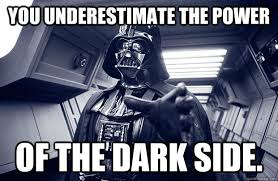jar546
CBO
Tell your story if you want to below. I will start.
While still working as a contractor, I often helped the local building official in a city that enforced the BOCA code. That experience gave me an inside look at how building departments operated and how much the public relied on them to get things right.
As I transitioned out of contractin,g I built a very successful home inspection business. My experience and competency set me apart in a field where many inspectors were relatively inexperienced. I am not taking anything away from home inspectors as a group; there are plenty of excellent ones, but just holding an ICC certification does not automatically make someone competent.
During those years, I inspected a lot of new construction for home buyers. Time and again, I saw the same problems: building officials, inspectors, and plan examiners missing basic code requirements. I had to call or show up in person with photographs to prove violations that should have been caught without question. The mistakes were not subtle. They were fundamental.
I grew tired of the excuses and the mediocrity. People who worked hard to save for a new home, whether to raise a family, retire, or simply live their lives, were being let down. Structural deficiencies, poor waterproofing, and unsafe electrical or mechanical systems often go unnoticed for years before turning into expensive and sometimes dangerous problems.
That frustration pushed me to take the next step. I became an inspector, then a plans examiner, and ultimately a Building Official. Every industry has its share of the competent, the incompetent, and the mediocre. It was the mediocrity and outright incompetence I witnessed that drove me to become a Building Official, to hold the line, to enforce the code fairly and consistently, and to protect the people who trust that their homes will be safe and built to minimum standards.
While still working as a contractor, I often helped the local building official in a city that enforced the BOCA code. That experience gave me an inside look at how building departments operated and how much the public relied on them to get things right.
As I transitioned out of contractin,g I built a very successful home inspection business. My experience and competency set me apart in a field where many inspectors were relatively inexperienced. I am not taking anything away from home inspectors as a group; there are plenty of excellent ones, but just holding an ICC certification does not automatically make someone competent.
During those years, I inspected a lot of new construction for home buyers. Time and again, I saw the same problems: building officials, inspectors, and plan examiners missing basic code requirements. I had to call or show up in person with photographs to prove violations that should have been caught without question. The mistakes were not subtle. They were fundamental.
I grew tired of the excuses and the mediocrity. People who worked hard to save for a new home, whether to raise a family, retire, or simply live their lives, were being let down. Structural deficiencies, poor waterproofing, and unsafe electrical or mechanical systems often go unnoticed for years before turning into expensive and sometimes dangerous problems.
That frustration pushed me to take the next step. I became an inspector, then a plans examiner, and ultimately a Building Official. Every industry has its share of the competent, the incompetent, and the mediocre. It was the mediocrity and outright incompetence I witnessed that drove me to become a Building Official, to hold the line, to enforce the code fairly and consistently, and to protect the people who trust that their homes will be safe and built to minimum standards.

